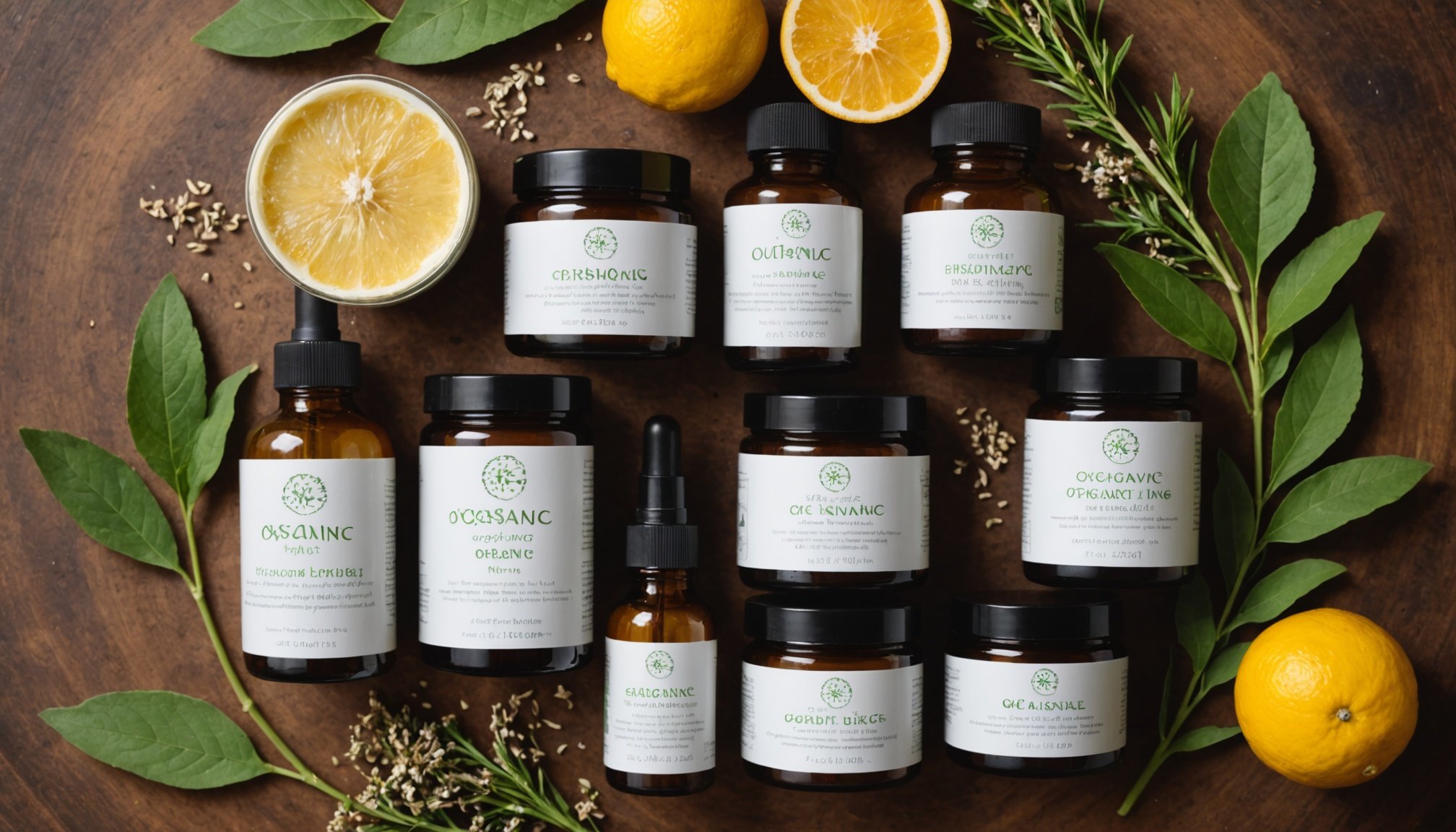Understanding the UK Organic Skincare Market
The UK organic skincare market analysis provides an insightful glance into current trends. A significant shift towards sustainable and ethically-produced products is observable. Consumers show an increasing preference for organic ingredients, driven by awareness about harmful chemicals. Demographically, millennials and Gen Z are the key drivers, valuing transparency and environmental impact in their purchasing decisions.
Key players define the competitive landscape by offering innovative solutions and maintaining certifications to gain trust. Major players include Estee Lauder and L’Oréal, leveraging their market influence to promote organic lines. Emerging brands like Neal’s Yard Remedies and REN Clean Skincare are also gaining traction due to their commitment to purity and ethical sourcing.
In parallel : Unlocking Success: The Ultimate UK Luxury Watch Retailer’s Guide to Mastering Import Regulations
Understanding consumer preferences is pivotal. For instance, there is a growing demand for multifunctional products, such as BB creams combining skincare benefits with make-up, aligning with busy lifestyles. Customisation, allowing individuals to tailor products to their unique needs, also presents burgeoning opportunities in the market.
Adapting to these evolving trends is crucial for survival and growth in the UK organic skincare market, requiring ongoing analysis and strategic shifts. For companies, embracing innovation and authenticity serves as vital paths to capture, engage, and expand their customer base effectively.
In the same genre : Starting Your UK Drone Delivery Business: A Comprehensive Guide to Aviation Safety Compliance
Navigating Legal and Regulatory Requirements
Navigating the UK skincare regulations is crucial for businesses aiming to succeed in the competitive market. Both UK and EU cosmetic regulations outline stringent guidelines to ensure product safety and consumer protection. Businesses must comply with regulations such as the EU Cosmetics Regulation (EC) No 1223/2009, and its UK equivalent, which detail necessary safety assessments, labelling requirements, and prohibited substances.
Product safety assessments are mandatory; they evaluate potential risks associated with cosmetic ingredients and ensure consumer safety. Moreover, accurate labelling is vital to inform buyers about the product’s content, usage, and any potential allergens.
The importance of certifications cannot be overstated. Certifications such as Soil Association and Ecocert not only validate organic claims but also build consumer trust. They serve as a promise of quality, proving that products meet established organic criteria. Such certifications can greatly influence consumer decisions, providing a competitive advantage in the vibrant UK organic skincare market.
Understanding and adhering to these regulations and requirements ensures products are safe, reliable, and marketable. It also paves the way for future growth by aligning business practices with shifting consumer expectations and legal frameworks.
Sourcing Organic Ingredients
In the dynamic world of organic skincare, organic ingredient sourcing is a cornerstone for product integrity and consumer trust. Establishing relationships with reliable suppliers is essential. Identifying suppliers who are transparent about their sourcing processes can enhance the authenticity of skincare products and ensure quality. Suppliers should ideally provide certifications such as the Soil Association and Ecocert to validate their organic claims.
Identifying Reliable Suppliers
To identify reliable suppliers, companies should investigate the supplier’s background, production methods, and adherence to ethical sourcing standards. Regular audits and transparency about ingredient origins help in selecting suppliers that align with company values.
Certifications to Look For
Consumers are increasingly looking for certifications as a mark of trust. Certifications like Soil Association and Ecocert not only assure the organic origin of ingredients but also meet stringent environmental and ethical guidelines. These certifications are pivotal in distinguishing authentic organic brands in a crowded market.
Sustainability Considerations
Focusing on sustainability in organic ingredient sourcing greatly impacts brand identity. Brands committed to sustainability should prioritize suppliers with minimal environmental impact. Emphasizing eco-friendly practices not only supports the brand’s mission but also appeals to environmentally-conscious consumers, building a loyal customer base.
Product Formulation and Development
In the world of skincare, skincare product formulation is pivotal to ensuring both effectiveness and appeal. The formulation process involves selecting key components that align with natural and organic standards. Balancing efficacy with natural ingredients is a significant challenge, requiring careful consideration of ingredient interactions and benefits without relying on synthetic additives.
To achieve optimal formulation, it’s essential to utilise ingredients that enhance the skin’s health while retaining their organic integrity. This includes leveraging plant-based compounds that are both robust in performance and gentle on the skin. Anti-inflammatory botanicals, antioxidants, and natural oils often feature prominently.
Testing and quality assurance processes are fundamental in the formulation stage. Rigorous testing, including dermatological trials and stability assessments, ensures safety and consistent performance. Quality control measures must be in place to guarantee that each batch meets the high standards of organic claims. This ensures that the end consumer receives a product that’s not only safe but also effective.
Incorporating these strategies within skincare product formulation can significantly improve a brand’s standing in the market, promote consumer satisfaction, and increase brand loyalty, thus reinforcing its reputation for producing quality organic products.
Building Your Brand Identity
Creating a strong brand identity in the organic skincare industry requires a clear understanding of your unique selling proposition (USP). A USP is what sets your brand apart from competitors; it could be a commitment to rare organic ingredients or a pioneering sustainable practice. Defining this proposition can bolster brand recognition and customer loyalty.
Packaging and design play an integral role in communicating your brand values. Opting for sustainable packaging not only aligns with eco-friendly initiatives but also appeals to environmentally conscious customers. Thoughtful design should reflect the purity and authenticity of the brand, helping products stand out on crowded shelves.
Building an emotional connection with consumers is another essential aspect. This can be achieved by crafting relatable brand stories that resonate with consumer values and acknowledging the importance of personal and ethical care in product creation. Engaging storytelling can foster deeper connections, making customers feel part of a bigger community.
- Key Tips for Branding:
- Highlight your USP and integrate it into all marketing materials.
- Invest in sustainable and eye-catching packaging.
- Develop engaging narratives to connect emotionally with your audience.
Establishing a robust brand identity not only differentiates you in the market but also encourages consumer commitment and enthusiasm.
Case Studies of Successful Organic Skincare Brands
Exploring organic skincare brand success stories offers invaluable insights for both budding entrepreneurs and established players. Brands like The Ordinary and Tata Harper exemplify outstanding success within the competitive organic market. Their strategic focus on transparency and ingredient quality resonates deeply with today’s conscious consumers.
The Ordinary revolutionised the market by providing products with well-researched active ingredients at accessible price points. Their minimal yet informative packaging demystifies skincare, empowering consumers to make informed choices. Such transparency in formulations helps build trust and simplifies the often-confusing world of skincare.
Similarly, Tata Harper’s dedication to using 100% natural ingredients and in-house batch production has cultivated a loyal customer base. This commitment to purity and quality control allows consumers to trust the efficacy and safety of their products fully.
Successful brands often leverage innovative marketing and community engagement tactics. For instance, collaborations with influencers who embody the brand’s ethos can significantly amplify reach. Similarly, hosting workshops empowers customers by educating them about product benefits and usages, fostering a strong brand community.
Overall, these examples reveal that authenticity, transparency, and consumer engagement are key strategies that significantly contribute to the success of organic skincare brands.
Resources for Entrepreneurs
Navigating the world of organic skincare requires access to reliable skincare business resources. Entrepreneurs must equip themselves with knowledge to thrive, starting with recommended readings and websites. Books such as “Organic Skincare Business Startup” provide a foundational understanding of launching and sustaining a business in this niche market.
Online platforms like the British Beauty Council offer invaluable insights into trends and market shifts. Subscribing to industry-specific newsletters ensures entrepreneurs remain informed about regulatory updates and innovative practices. Knowledge is power, particularly in a rapidly evolving industry where consumer preferences and legal requirements are in constant flux.
Networking plays a critical role in business development. Engaging with fellow entrepreneurs through events or online forums enhances knowledge exchange and fosters collaborations. Participating in trade shows and industry conventions can expose entrepreneurs to new technologies, trends, and potential partners. Additionally, establishing connections with key stakeholders can significantly enhance market presence.
For structured business planning, utilizing checklists and templates streamlines compliance and strategic development. These tools aid in creating clear and actionable roadmaps for business growth, ensuring key considerations are addressed promptly. Ensuring a robust grasp of these resources primes entrepreneurs to tackle challenges effectively within the organic skincare landscape.
Marketing Strategies for Launch
Launching a successful organic skincare brand hinges on well-crafted organic skincare marketing strategies. Online marketing techniques play a pivotal role in today’s digital-first landscape. Harnessing platforms such as Instagram and TikTok allows brands to visually showcase products, educate potential customers, and foster engagement. Creating visually appealing content that aligns with the brand’s ethics captivates audiences and builds interest.
Simultaneously, traditional marketing approaches shouldn’t be overlooked. While digital platforms dominate, print media and press releases targeting eco-conscious audiences can effectively broaden reach. Product placements in organic skincare-focused magazines or participation in eco-themed events can yield significant brand exposure.
Building a community of brand advocates is essential. Hosting workshops or webinars where consumers learn about product benefits strengthens ties and empowers customers. Collaborations with influencers and beauty experts amplify reach, providing authentic voices that resonate with target demographics.
To engage consumers meaningfully, initiatives such as exclusive previews or limited-edition product launches can create buzz and enhance loyalty. Through a balanced mix of both online and traditional avenues, along with community engagement, new brands can effectively navigate the competitive landscape and claim their spot in the thriving organic skincare market.











